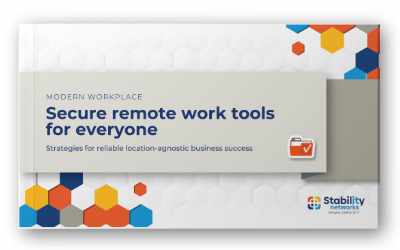There’s been plenty of research in recent years on how much time the average person spends on their mobile phones per day, and the estimates range from two to five hours, depending on the studies you read.
The blatant truth is that smartphones are addicting. They’re a productive component of our work and social lives but can also be just an entertaining waste of time. Either way, they’re becoming a threat to our personal security. Hackers are using a technique called “Smishing,” and it’s becoming more and more prevalent every day.
What is Smishing?
As you’ve likely inferred, Smishing is a playful nickname for a tactic that combines “SMS texting” and “phishing.” Scam artists are sending deceptive text messages to phones to lure us into a devious trap. The texts appear as realistic messages from such places as your bank or favorite phone app. In reality, there’s a way for cybercriminals to exploit your personal data.
Imagine that your phone receives a text from your bank that reads,
“This is Sally from XYZ Bank, informing you of an over-expenditure on your credit card. Please verify this expenditure.”
The link they provide will send you to a landing page that resembles your financial institution’s log-in page, and as soon as you hit enter with filled-in credentials, your personal and financial data is readily available to the bad guys.
Why Does Smishing Work?
Most of us think that we wouldn’t fall victim to such a scam, but realistically – all of us are prone to situational lapses in judgment. Criminals have a knack for catching innocent people at the wrong time, much like any other situation in life when humans are unexpectedly victimized.
They simply instill fear to create a knee-jerk reaction from the recipient.
Avoiding Smishing Scams
If a company sends an SMS to your phone, follow this general rule of thumb: If you didn’t ask for it to be delivered, consider it a red flag. For example, you can trust ESPN’s verification code to finish signing up for Fantasy Football, but a text that asks you to reply with personal data is sketchy. Here are some other tips to avoid Smishing:
- Legitimate companies like your bank, government agencies, or your favorite retail shop will never ask for personal or financial data via a text message.
- Take your time. Find the company’s actual contact information on Google and contact them for reassurance.
- Never click an unsolicited link from a text message.
- Be skeptical of phone numbers ending in “000”
How Stability Networks Can Help
Our IT Consulting and VCIO services will keep you safe. When you call on Stability Networks for your IT consulting needs, we take the time to understand your inquiries and deliver answers to any of your technology questions. Call us today to speak with one of our advisory specialists!






